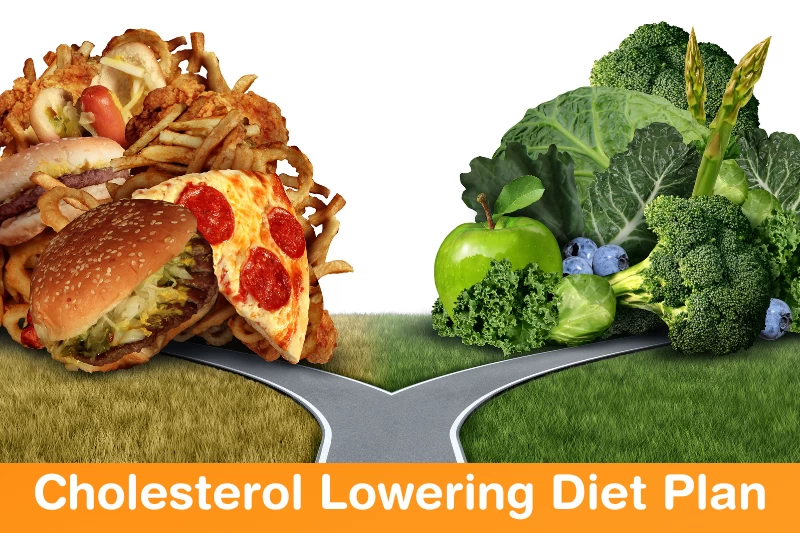
- 3rd July 2024
Table of Contents
- Nutritional Profile of Garlic (100 grams)
- Beneficial for Cardiovascular Health
- Supports Immune System
- Benefits Against Inflammation and Free Radicals
- May Prevent Against Age Related Degenerative Disease
- It May Improve Your Athletic Performance
- It's possible that garlic can help build stronger bones
- Adds flavour to food and is easy to incorporate in your diet
For more than five thousand years, people have relied on garlic for more than just its culinary and medicinal uses. Many ancient cultures, including the Greeks and Egyptians, placed a high value on garlic due to its medicinal and even monetary uses.
Even in modern times, the many health benefits of garlic have not diminished its renown for its aromatic pungent flavor. Garlic is an adaptable spice that can improve your health in many ways, including the immune system and the cardiovascular system.
Here on the blog, we'll discuss the numerous ways garlic improves your health and offer advice on how to make this superfood a regular part of your diet. Garlic has many uses; it can boost your immune system, enhance your cardiovascular health, or just impart a delicious flavor to your food.
Nutritional Profile of Garlic (100 grams)
The family Allium includes the onion and garlic. It shares a close relationship with leeks, onions, and shallots.
Cloves are the individual parts of a garlic bulb. An average bulb contains between ten to twenty cloves.
Garlic, with its pungent aroma and scrumptious flavor, is a globally popular ingredient that grows in many regions.
Nevertheless, garlic's health and medicinal benefits were well-known in ancient times, and its usage was widespread. The Egyptians, Greeks, Romans, Chinese, and Indians were among the many great civilizations whose usage of it has been recorded in written form.
Researchers have discovered that the majority of the beneficial effects of garlic come from the sulfur compounds that are produced when garlic is crushed, chewed, or chopped.
Allicin is one of the most famous compounds. But allicin is a volatile chemical, so it's only there for a short while in freshly chopped or crushed garlic.
The compounds diallyl disulfide and s-allyl cysteine may also contribute to garlic's beneficial effects on health.
It is through the digestive system that the sulfur compounds found in garlic enter the body. They spread throughout your body and have powerful biological effects once they get there.
Beneficial for Cardiovascular Health
Lowers Cholesterol Levels
- Garlic's ability to lower levels of low-density lipoprotein (LDL) cholesterol is a boon to heart health. This type of cholesterol is known as "bad" cholesterol because it contributes to the buildup of plaque in the arteries. The danger of cardiovascular disease and stroke can rise as a result of the obstruction it causes to blood flow.
- Boosting Good HDL Cholesterol: On the other hand, garlic has the ability to increase levels of HDL cholesterol. The "good" cholesterol, or HDL, aids in the elimination of bad cholesterol from the bloodstream. The risk of cardiovascular disease is inversely proportional to HDL levels.

Decreasing Hypertension
High Blood Pressure is one of the leading causes of cardiovascular disease and stroke. Research has shown that garlic can help lower blood pressure, which is great news for people who suffer from hypertension. One way to lower blood pressure is to eat garlic, which contains active ingredients like allicin, which help relax blood vessels and improve blood flow.
The primary mechanism by which garlic lowers blood pressure is through its vasodilatory effects, which aid in the widening of blood vessels. Because of this effect, the strain on the arterial walls is reduced, allowing blood to flow more easily.
Heart Disease Prevention
Garlic's Role in Lowering Risk of Heart Disease: Several studies have shown that eating garlic on a regular basis lowers the risk of cardiovascular disease.
A number of mechanisms work together to accomplish this, including the fact that garlic reduces blood pressure and LDL cholesterol and also protects cells from oxidative damage due to its antioxidant qualities.
According to various studies, garlic lowers arterial stiffness and improves blood circulation, which in turn improves heart health.
Atherosclerosis, or the hardening of the arteries, is a common risk factor for cardiovascular events like heart attacks and strokes. These advantages help reduce that risk.
Supports Immune System
Eating garlic regularly can help stave off illnesses like the flu and the common cold.
According to studies, the immune system may get a boost from aged garlic extract (AGE).
Taking AGE supplements for three months throughout the cold and flu season reduced symptoms and the number of sick days taken, according to the study.
Some studies have also shown that garlic's compounds may have antiviral effects. Furthermore, it has the potential to inhibit viral entry into host cells and intracellular replication in addition to enhancing the immune system.
Benefits Against Inflammation and Free Radicals
There are anti-inflammatory compounds in garlic, including diallyl disulfide and S-allyl cysteine. While inflammation is a normal immune response, long-term inflammation is associated with an increased risk of many diseases and cancers, including arthritis, cardiovascular disease, and some types of cancer.
Because of its anti-inflammatory characteristics, garlic can be especially helpful for people who suffer from arthritis. Garlic, by lowering inflammation, can ease arthritis-related joint stiffness and pain.
Garlic supplements may alleviate inflammatory symptoms by lowering blood levels of inflammatory markers, according to research.
One possible explanation for garlic's anti-inflammatory properties is that it can stop the body from making certain enzymes and cytokines that promote inflammation. As a result, the body's inflammatory response is lessened.
Garlic's abundance of antioxidants helps keep the body safe from free radical damage. Chronic diseases and aging can be accelerated by free radicals, which are unstable molecules capable of damaging cells, proteins, and DNA.
Allicin, quercetin, and selenium are some of garlic's antioxidants; they help reduce oxidative stress and free radicals, which in turn lowers the risk of chronic diseases. Chronic diseases like cancer, heart disease, and neurodegenerative disorders are less likely to develop as a result of this protective effect.
The antioxidant capabilities of garlic have been shown in a plethora of research. For instance, taking garlic supplements can boost the body's antioxidant enzyme activity, making it more effective at fighting oxidative damage, according to the research.
Health Advantages as a Whole: Garlic promotes health and longevity by decreasing inflammation and oxidative stress. Its anti-inflammatory and antioxidant effects complement one another to safeguard cells, leading to improved health and illness prevention.
May Prevent Against Age Related Degenerative Disease
To a lesser extent, the antioxidants found in garlic may ward off dementia and Alzheimer's disease.
One cause of aging and the accompanying loss of cognitive function is oxidative damage caused by free radicals.
You can bolster your body's defenses against oxidative damage by eating garlic, which is rich in antioxidants. According to studies, these antioxidants can lessen oxidative stress and the likelihood of diseases like Alzheimer's, the most prevalent kind of dementia.
Allicin, found in garlic, may likewise aid in protecting against cognitive decline, according to a study. Before we can grasp its full potential, we need research involving humans.
Garlic supplements have been shown to directly benefit individuals with Alzheimer's disease.
It May Improve Your Athletic Performance
Your athletic performance might be boosted by taking garlic supplements. Garlic is one of the earliest performance boosting substances.
People in the past would chew garlic in order to stave off exhaustion and increase their productivity on the job. Garlic was used by ancient Greek Olympic athletes as a performance enhancer.
Experiments on rodents and on small human groups have demonstrated that garlic improves exercise performance.
It's possible that garlic can help build stronger bones
A small number of studies conducted recently have examined garlic's impact on bone health, particularly in postmenopausal women.
A study indicated that garlic may mitigate the oxidative stress that causes osteoporosis. The daily dosage of garlic tablets that the subjects took was equivalent to approximately 2 grams of fresh garlic.
Researchers in 2018 discovered that women who were overweight or obese and suffered from knee osteoarthritis experienced less pain after taking garlic supplements (1 gram daily) for 12 weeks.
Adds flavour to food and is easy to incorporate in your diet
The final one isn't directly related to health, but it's still crucial. Adding garlic to your current diet plan is a breeze. Soups and sauces, in particular, pair well with it. Garlic, with its robust flavor, can also liven up dishes that would otherwise be too subtle.
Garlic is available in a variety of forms, including whole cloves, pastes, powders, and supplements such as oil and garlic extract.
One typical method of preparing garlic is to crush a few cloves of fresh garlic using a garlic press. The crushed garlic is then combined with extra virgin olive oil and a pinch of salt. As a salad dressing, it's easy and healthy.














